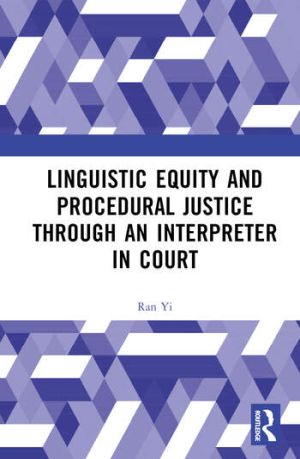
This book presents the findings from original research about court interpreting in the disciplines of humanities and social sciences from a linguistic perspective. It argues that the interpretations of the manner of speech in court can have implications for the accuracy of court interpreting and thus procedural justice.
The right to a fair representation in one’s language of choice is a crucial aspect of linguistic equity and procedural justice. However, little has been researched about how lawyer questions and the defendant’s responses are interpreted in courtroom examinations. Drawing on questionnaires and interpreting performance data, this mixed-methods study adopts a practice-informed and evidence-based approach to showcase how linguistic evidence can be altered and under-represented through an interpreter in court. This book has three main contributions: (1) increasing the awareness of interpreting accuracy through the manner of speech, linguistic equity ,and procedural justice through a court interpreter, (2) promoting effective multilingual legal communication through interprofessional understanding and researcher-practitioner collaboration, and (3) compassing future pedagogies about the interpreting accuracy of the manner of speech in court interpreter training.
Readers interested in applied linguistics and translation studies would benefit from reading this book. This interdisciplinary work focuses on language policy, court interpreting and linguistic human rights policy and qualitative research methods.